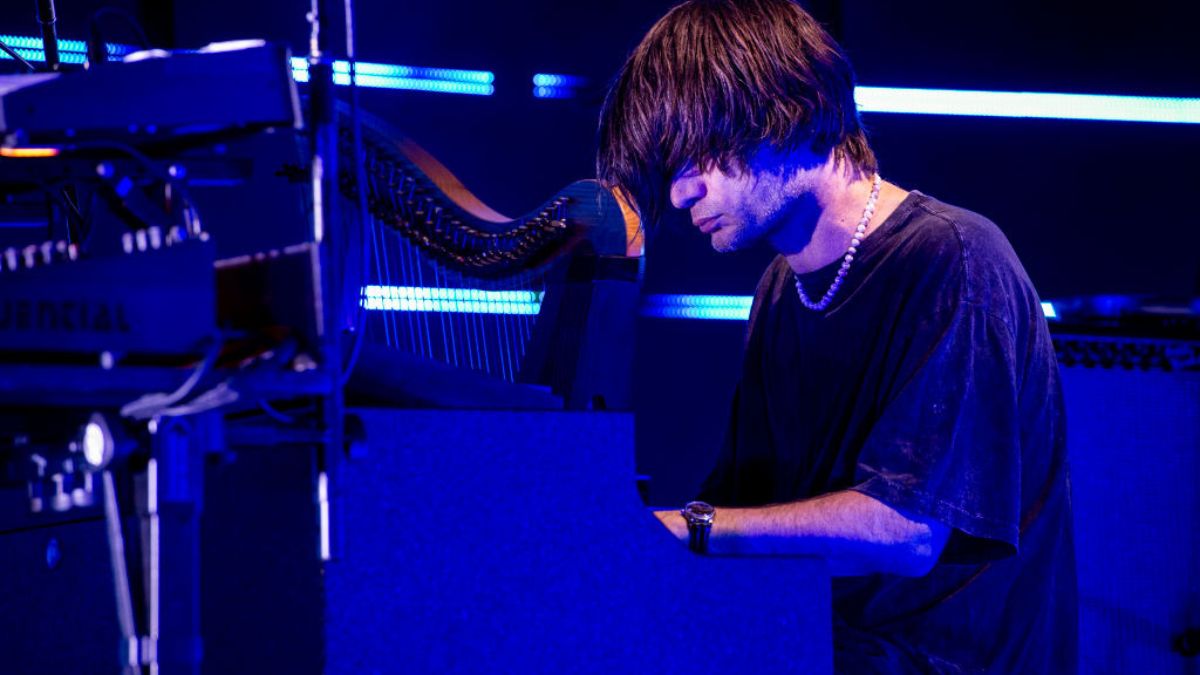
I want to believe in Tomorrowland.
Like The Iron Giant and The Incredibles before it, Brad Bird’s latest is a thrilling, original adventure that really wants to make you feel something. It’s a non-sequel, non-comic affair, powered by old-fashioned sentiments of optimism and hope, whole-heartedly committed to feeding the creative souls of idealistic youngsters in the audience. In a cinematic climate saturated with dystopian gloom and superhero fantasy, the film’s earnest message – that ordinary people can ensure the future of their dreams by fighting for it – is welcome.
What’s less welcome is all the claptrap surrounding Tomorrowland‘s vintage Disney core. As written by Bird, Lost‘s Damon Lindelof and Entertainment Weekly TV critic Jeff Jensen, it’s a movie that tries to run with some admirably big ideas but ends up tripping over its own feet, hobbled by tin-eared dialogue and a third-act shift from ebullient positivity to sanctimonious finger-wagging. Frustratingly, the deeply likable notion that anchors Tomorrowland gets cast aside once the filmmakers take it upon themselves to deliver a bizarrely disjointed sermon on how human apathy and short-sightedness has doomed us all. That was never the film’s purpose, and that it eventually threatens to derail the pic is especially disappointing given how strongly everything kicks off.
To the young Frank Walker (Thomas Robinson), every invention imaginable will eventually be built – provided that someone keeps at it. When we meet him in 1964, in attendance at the wondrous New York World’s Fair, Frank is preoccupied with constructing a jetpack, propelled forward simply by his desire to make something fun and capable of inspiring other budding inventors. He doesn’t win the contest he came for, but after following a mysterious girl with an incredible secret (Rafe Cassidy, a charming discovery) onto a “It’s A Small World” park ride, Frank finds himself hurtled into a futuristic utopia, complete with monorails, sleek skyscrapers and hovercrafts floating through the clouds. Before long, the kid is soaring through the skies, gliding through this new world with gleeful, giddy abandon – and Bird ensures that we share in his sense of wonder.
The smooth way in which the film positions Tomorrowland as a new kind of roller-coaster ride, as spine-tinglingly fresh and filled with possibility as “It’s A Small World” is cozy and familiar, sets the tone for the film’s rollicking first half. Moving to the present day, we quickly meet Casey Newton (Britt Robertson, who delivers what should be a star-making performance), an exceptionally bright girl whose lifelong dream of traveling into space is threatened by the NASA space program shutting down. As in Interstellar, NASA’s shuttering is a harbinger of dark days to come. The world, it seems, is entering a downward spiral, with all manner of hurricanes, floods, wildfires and political upheavals spelling the end of days. Casey is the only one asking the important question: “Can we fix it?”

Her lack of resignation to a seemingly certain future is what brings Casey, through a fantastical series of events I don’t dare spoil here, to the attention of an older, jaded Frank Walker (George Clooney), who still knows a way into that unblemished paradise. Tomorrowland, it’s revealed, was first established as an endless playground in which the world’s greatest minds could build whatever they wanted away from the greed and apathy of the rest of the world – but something (again, avoiding spoilers here) has led to its dissolution. But Casey, unlike Frank, still believes in the spirit of discovery that so galvanized the latter as a young boy. And so, before long, the pair are caught up in a race against time (and robot assassins commanded by Hugh Laurie’s disgruntled baddie, naturally) to do nothing less than bring hope back into the world.
All that exposition, most of it messily delivered, weighs heavily on Tomorrowland, which is really less about plot and more about an earnest desire to make sparks fly in young minds. The flick is a deliberate antidote to darker popcorn fluff like Transformers and Avengers: Age of Ultron, which shove death, destruction and dystopia down tweens’ throats without ever painting regular people as anything other than pawns in catastrophic conflicts between much larger forces (one recurring gag in Tomorrowland is an ad for an all-too-believable slice of apocalyptic blockbuster trash called ToxiCosmos 3). Tomorrowland asks us to believe in our own ability to shape a future that Hollywood consistently emphasizes is entirely out of our mere mortal hands.
If Bird and company had successfully posed that challenge to audiences, Tomorrowland would easily be one of the best Disney movies in years. Its intentions are so pure, and its heart so full, that you desperately want the film to dazzle you. “Do I have to explain everything?” Walker asks an inquisitive Casey at one point. “Can’t you just be amazed?” The problem with Tomorrowland is that it doesn’t heed its own advice. The movie collapses in a chaotic, contrarian muddle around the same time Laurie’s villain shows up to counter Casey’s shining optimism with fatalistic contempt. Frittering away too much of its runtime with base-level, faux-philosophical lectures on how we’re draining the Earth dry and neglecting scientific progress, Tomorrowland wears thin the one thread that really matters – its sense of wonder.
It must be said that it’s easy to roll your eyes at an imperfect movie, to toss something to the side, scribble down some snarky puns and move along. What’s much harder to do is to look past a film’s flaws and really think about what it’s trying to do. And Tomorrowland, undeniably, is trying to do more than most, and that does matter. It offers plenty of CGI razzle-dazzle, particularly in one sequence where the Eiffel Tower cracks open like a Faberge egg to reveal an antiquated rocket reminiscent of both Georges Méliès and Wallace and Gromit. In Robertson’s Casey, the pic also presents one of the year’s strongest female role models, a whip-smart dreamer far too enamored with scientific discovery to ever even consider worrying about romance or her looks. There’s even a touching subplot involving artificial intelligence that will tug at every cynics’ heartstrings.
Most importantly, though, Bird’s movie wants to inspire all of us, especially the young ones, to push for the world we want to see, not the troubled one we’re often told to settle for. Tomorrowland is an audacious, untidy work that wants us to be better and dream bigger. I can’t hate it for that. As confused, contradictory and corny as the film occasionally is, it still has the courage to carry a torch for the creative spirit. In a world where it’s not just pleasing but pervasively popular to be apathetic and cynical, Tomorrowland dares to care.










Published: May 19, 2015 06:23 pm